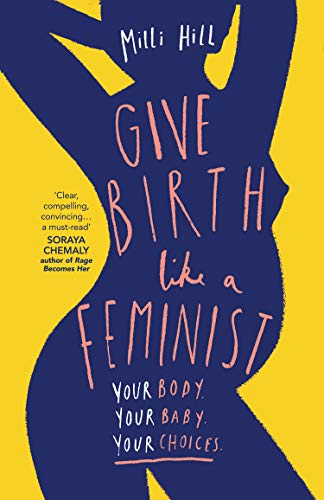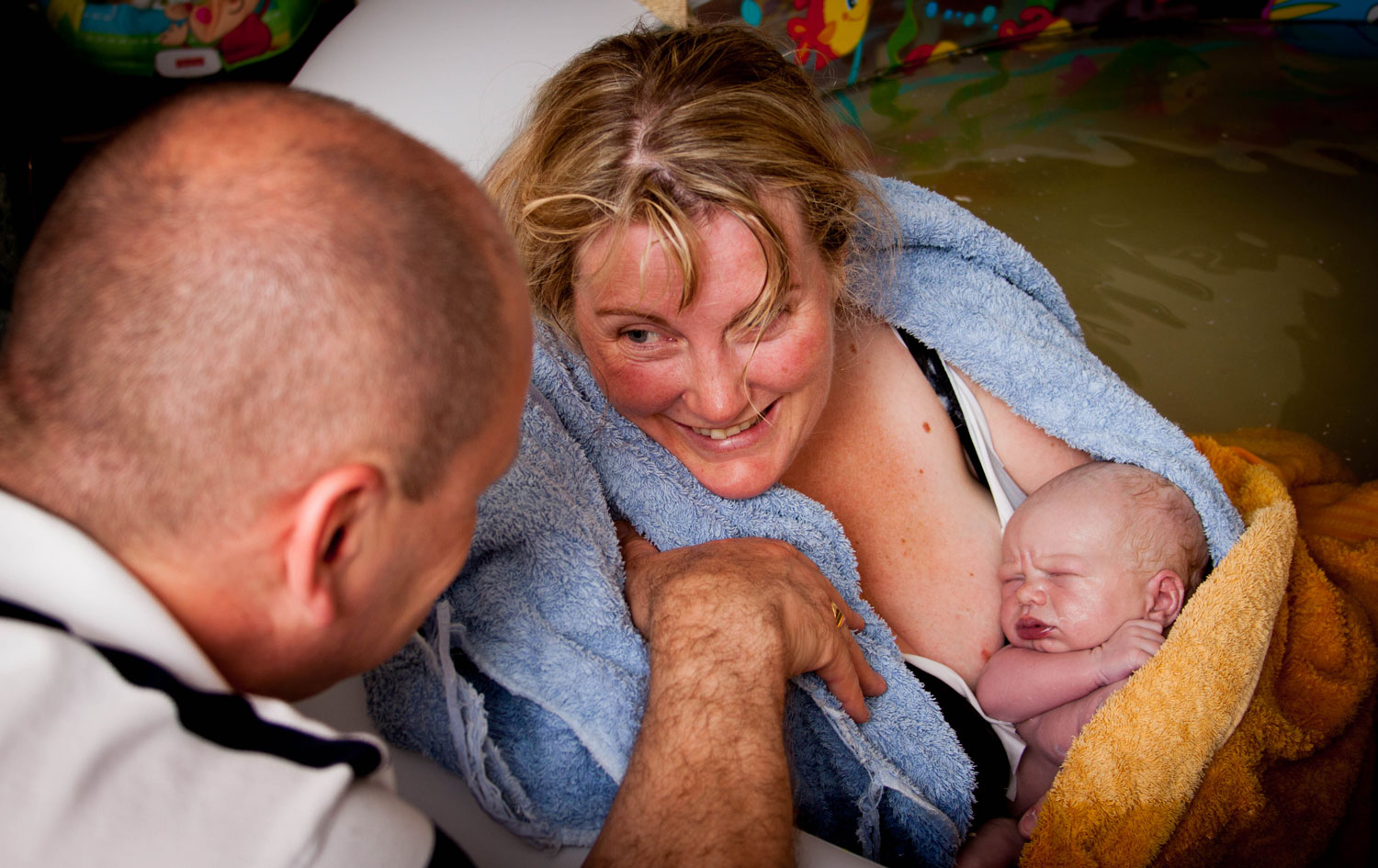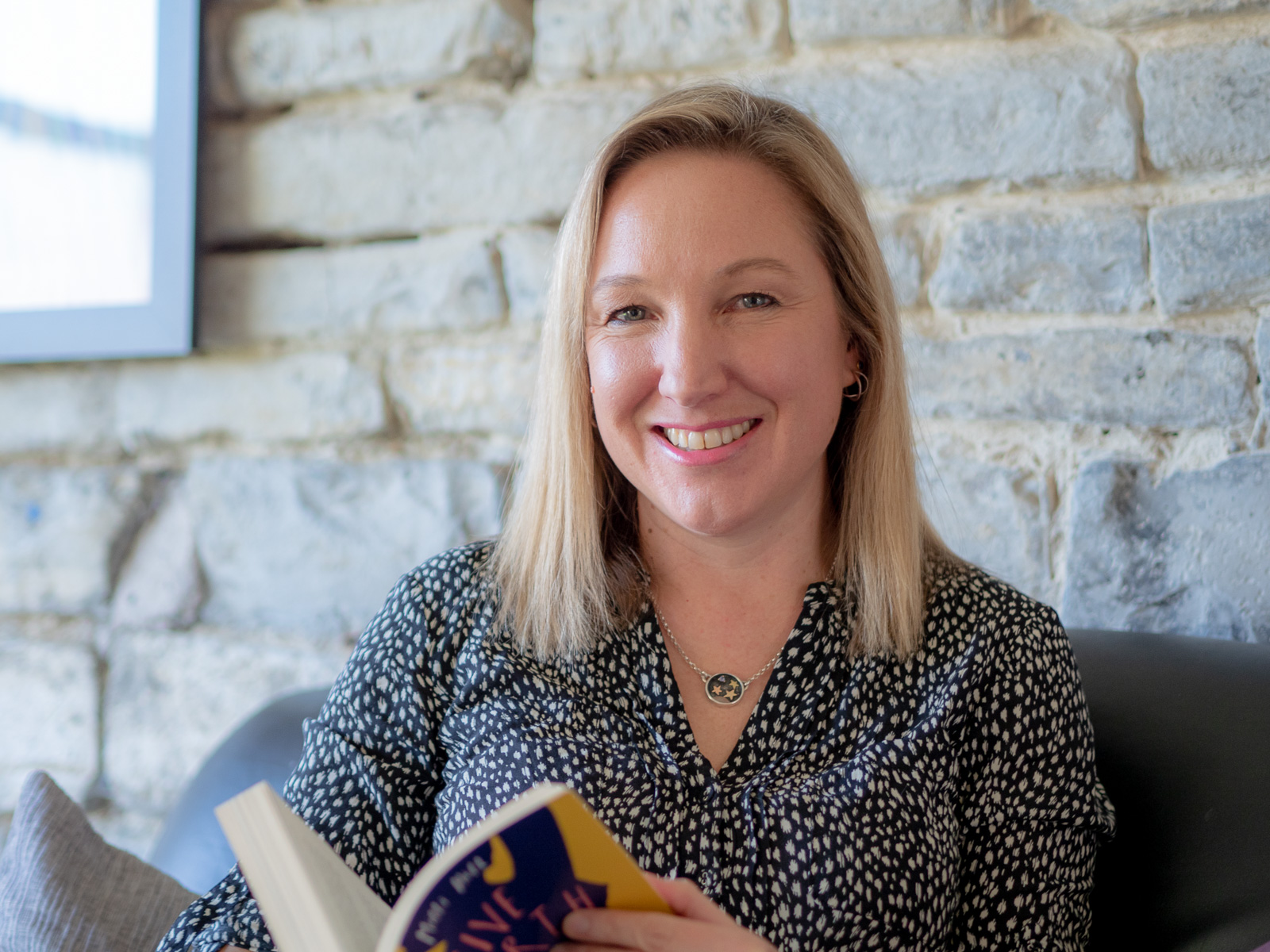Ask the expert: Author Milli Hilli on how to “give birth like a feminist”
We’ve been voting for decades, and more women enrol in medicine and law than men. Yet birth is one area where power imbalances continue. To address that, journalist Milli Hill wrote “Give birth like a feminist”. We asked her about some of her key messages for mothers wanting an empowered birth.
 What’s the number one message you hope people take away from your book?
What’s the number one message you hope people take away from your book?
That women have rights and bodily autonomy in childbirth – that they have a voice, and a right to use that voice!
Too often women who want a positive or empowering birth experience are portrayed as ‘divas’ who have got carried away, selfish women who don’t care about their baby or about safety etc. This is not the case – women are entitled to a birth experience that they walk away from feeling good, healthy and ‘in one piece’ both mentally and physically.
This really matters, for women, and for everyone really, because an empowered birth can potentially have a knock-on effect on every area of a woman’s life – her mothering, her relationship, her sex life, her body confidence, her mental health, her career – all of it!
So yes, the number one message is that birth matters, and it’s ok to say so!
It can be hard to understand why otherwise educated, empowered women, then accept having little choice in pregnancy and birth. What’s the simplest way to explain this?
Because the message that they don’t have any choice is constantly reinforced by the culture.
Women are told, when you have your baby, you have to ‘leave your dignity at the door’. The narrative is that this will be quite a degrading and terrifying experience and the best you can hope for is to ‘endure it’.
‘What can you do to endure it?’ is kind of a question that is centralised in the narrative. When a woman is pregnant, [it is] a question that preoccupies her, and that other people will pose to her as well when they ask, ‘What pain relief will you have etc?’ and this is made the focus of discussion constantly.
They are told, ‘you cannot control birth’ ‘there is no point in a birth plan’ ‘just go with the flow’ ‘a healthy baby is all that matters’ and so on and so on. Television shows about birth often don’t ever show a woman being presented with choices or making choices – they show her passive and being ‘rescued’ by the professionals, often voiceless. So yes, it’s just all about the messaging – fish don’t see water and sometimes we don’t think to question the prevailing narrative.
Do you have a favourite chapter in your book Give Birth like a Feminist?
 Yes, I think it is Chapter 4, ‘Loose Women’, because I think I did a good job there of drawing together the threads of how, to use the Atwood quote from the chapter, “A rat in a maze is free to go anywhere, as long as it stays inside the maze”, whilst we may all think we are making free choices about our births, there are quite strong penalties for both pregnant women and midwives who want to make choices out of certain parameters.
Yes, I think it is Chapter 4, ‘Loose Women’, because I think I did a good job there of drawing together the threads of how, to use the Atwood quote from the chapter, “A rat in a maze is free to go anywhere, as long as it stays inside the maze”, whilst we may all think we are making free choices about our births, there are quite strong penalties for both pregnant women and midwives who want to make choices out of certain parameters.
This in turn reflects the way in which women’s bodies, for example, their sexuality, have been regulated and controlled historically.
At how young age can we start learning how to “birth like a feminist”? And how?
Well, that’s an interesting question in light of the fact that I just wrote a book for preteen girls about menstruation. I got inspired to do this…[by the] connections between how we learn about female biology when we are children, with how we feel and what preconceptions we have about our bodies when we come to birth.
So, I think it is about a lifelong project of trying to think counter-culturally about the messages we are given about our female bodies.
Not always, but often, these messages, from menarche [the beginning of menstruation] to menopause, are along the lines of ‘women’s bodies are messy, painful, a burden, a curse, shameful, disgusting, they don’t work very well, they need fixing’ etc.
We need to challenge this idea and celebrate our brilliant female bodies, and this will absolutely impact how we give birth.
Did you encounter much controversy after your book was published?
Not really! I had one tough radio interview with a well-known TV doctor…I think her response was probably quite representative of people who think my work is all about dismissing doctors and telling women to go off and birth in a wood etc! Which of course is not the case – it’s about women having choice and bodily autonomy.
Knowing you have the right to say no to something doesn’t mean you, therefore, have to say no to anything – but it sure as heck affects the balance of power in the room if you know you have a choice!
Overall, though, the response to the book has been very positive – and it’s ongoing, as more people find the book and discuss it.
You wrote this before the pandemic. Do you see your work becoming particularly relevant in the current environment?
I think the pandemic has shone a light on what the system holds to be important or essential for labour and birth. “We have been forced to pare down the birth service to what is essential due to the pandemic” has almost always meant no home or birth centre birth, no doulas, no partners, limited physical touch – but that hospitals, machinery and monitoring have been allowed to stay. So that says a lot about how we as a culture view birth and how we view women and nurture women and give them what they really need – or not.
I think with or without the pandemic, birth is in a really dire place. It needs to be humanised but instead becomes more and more technologised – in step with a world in which humans are becoming increasingly distanced from nature and from our sexed bodies.
I think the only way that will be addressed is if humans collectively decide to put down their smartphones and go and stick their hands in the earth a bit more. Hug each other. Maybe the pandemic will encourage that tide to turn.

Milli Hill is a journalist and global spokesperson for women’s experiences in birth. “Give birth like a feminist” is her second book, after “The positive birth book”. Milli’s latest book, for preteens, is My Period: Find your flow and feel proud of your period!
About the Author
Louise Wedgwood is a freelance health and parenting writer, working with magazines, online publications and businesses. She has a background in health science, and enjoys helping parents make evidence-based choices. Her own children have shown her making the right decisions is never black-and-white.
Share this Post
Recent Posts
Recent Comments
- Jane Palmer on Fifteen with Twins
- Kc on Fifteen with Twins
- Kc on My Story about Teenage Pregnancy
- Laura-Jane Marsden on My Story about Teenage Pregnancy
- Jessica on My Story about Teenage Pregnancy
Archives
Categories
PBB’s Social Media Pages
The post Ask the expert: Author Milli Hilli on how to “give birth like a feminist” appeared first on Pregnancy Birth and Beyond.
Read Original Article: Ask the expert: Author Milli Hilli on how to “give birth like a feminist” »




